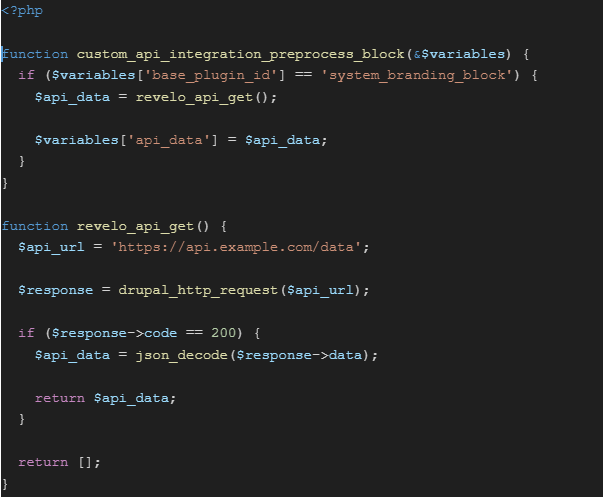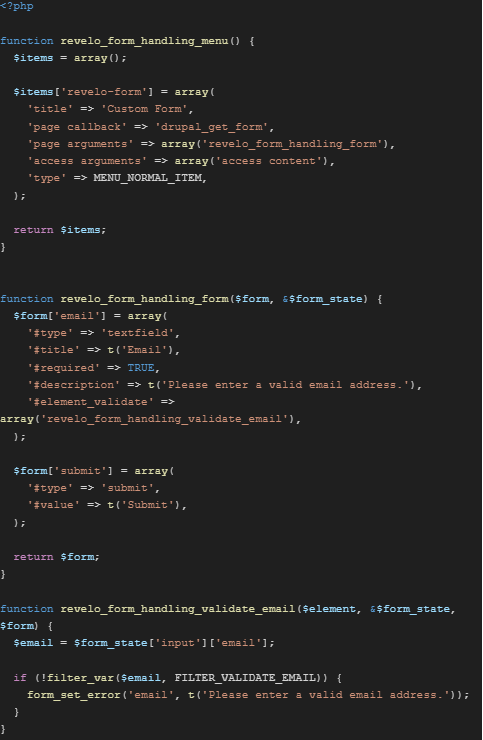

Services
Hire Developers
Human Data
Pricing
Use Cases
Customer Stories
Get added peace of mind with Revelo’s risk-free trial. If you’re not satisfied with your hire within the first 14 days: You pay nothing, and we’ll find you a new candidate at no additional cost.










Fabricio B.
Experience
10 years
AVAILABILITY
Full-time

Ariana C.
Experience
6 years
AVAILABILITY
Full-time

Larissa M.
Experience
10 years
AVAILABILITY
Full-time
Rigorously vetted for technical and soft skills. Expertly hand-picked for your needs
Work synchronously with developers in the same or overlapping US time zones
Get shortlists within 3 days and hire in as fast as 2 weeks
Go further and reduce the overhead of sourcing, hiring, and talent management
Admin Toolbar | Content Lock | Delete All | Devel | Entity Browser | GraphQL | Image Effects | PathAuto | Rabbit Hole | Token | Metatag
Angular.js | Vue.js | React.js | Express.js | Next.js | Svelte | Bootstrap | Meteor | Ember.js | Mithril | Node.js | Polymer | Aurelia | Backbone.js
Facebook API | Instagram API | YouTube API | Spotify API | Apple Music API | Google API | Jira REST API | GitHub API | SoundCloud API
Nexcess | Platform.sh | SiteGround | A2 Hosting | inMotion Hosting | Kamatera | Cloudways | Pantheon | Rochen | Hostinger | Acquia
MongoDB | PostgreSQL | MySQL | Redis | SQLite | MariaDB | Microsoft SQL Server
Drupal developers are critical in web development, especially for complex and high-security projects. Drupal is one of the most versatile CMS platforms available today. It is widely known for its sophisticated content management capabilities, extensive API support, and modular architecture, allowing intricate customization and scalability.
Skilled in PHP and versed in Drupal’s sophisticated framework, Drupal developers build dynamic websites and applications that are user-centric and SEO-friendly. As digital footprints become increasingly crucial for business growth, securing top-tier Drupal talent is essential for staying ahead in the competitive online space.
The pursuit to hire Drupal developers is a complex task, given the specificity of skills and experience required. However, tapping into Drupal expertise elevates a company's digital infrastructure, delivering rich, engaging web platforms.
Drupal is a powerful CMS that streamlines website content management. Known for its robustness and flexibility, Drupal powers everything from personal blogs to e-commerce platforms. Its extensive library of modules allows for customization and expansion according to project requirements. Startups and established companies that want robust, secure, and feature-rich web applications often turn to Drupal.
A Drupal website allows companies to quickly adjust their online strategies to align with evolving market trends, giving them an edge over competitors. With Drupal, organizations effectively manage complex content ecosystems, supporting both front-end aesthetics and back-end functionality and ensuring a compelling and cohesive user experience.
In today's digital-first landscape, a dynamic online presence is critical, and Drupal offers the adaptability necessary to achieve that. It empowers even those without advanced technical skills to effortlessly manage website content.
Drupal goes beyond content management, however. It also equips organizations with sophisticated tools designed to address complex operational demands, from marketing and search engine optimization (SEO) to e-commerce and data analysis. Its core features include native SEO capabilities, allowing businesses to fine-tune their online content for better search engine rankings directly within the platform.
Drupal's architecture offers a robust framework for active module development, enabling businesses to extend and personalize their web properties. Developers craft custom modules to integrate interactive features such as customer service chatbots or real-time data displays, aligning with an enterprise's unique needs.
Companies use Drupal to build anything from simple websites to complex JavaScript web applications, making it a versatile choice for any business. Some key benefits include:

A Drupal developer’s chief task is to create versatile, robust websites that cater to a company’s precise needs. They regularly engage with server-side programming, primarily using PHP, to build bespoke modules and conduct automated testing. Tasks may vary depending on the business, but typically, Drupal developers are responsible for:
For companies, Drupal developers are not just web specialists, they are key players in full-stack development — adept at both front-end and back-end challenges, making them indispensable in the digital marketplace.


Top candidates for a Drupal development position should exhibit a blend of technical acumen, problem-solving skills, and effective communication. Proficiency in PHP is essential, as it's the backbone of Drupal module development. Drupal developers should also be adept with HTML, CSS, and JavaScript to ensure seamless user experiences in the front end. Knowledge of SQL and MySQL for database management is vital in the back end.
A strong understanding of version control systems like Git should complement these technical skills. Candidates should be familiar with Drupal’s API and have experience developing custom modules. They must present a portfolio (e.g., on GitHub) of past Drupal projects as evidence of their expertise. Candidates should also demonstrate experience with Drupal’s theming system to tailor the appearance of web properties precisely to a company’s specifications.
The best Drupal developers are critical thinkers and problem solvers, capable of working independently and collaboratively. They should have a propensity for detail and a commitment to ongoing professional development to stay ahead of new updates and best practices within the Drupal community. Many companies will also want candidates experienced working in Agile environments.
While companies often see a degree in computer science or a related field as beneficial, it’s not always mandatory if the candidate demonstrates substantial practical experience. Certifications specific to Drupal, though not obligatory, are a testament to a candidate's dedication and skill level.
Drupal software development involves a suite of languages and libraries crucial for building and enhancing websites. PHP is at the core, driving module development and theming. JavaScript adds interactivity, and CSS, along with HTML, provides the styling and structure for a polished UI.
Complementing these languages, libraries such as jQuery, Modernizr, and Underscore.js offer developers tools for tasks ranging from browser feature detection to functional programming. These libraries ensure that Drupal sites are interactive, consistent across browsers, and technically sophisticated.
Drupal development hinges on a mix of languages that shape its core structure and enhance user interaction. From foundational PHP for module creation to dynamic styling with CSS and HTML, each language plays a pivotal role in crafting robust Drupal web properties. Three languages Drupal developers should be familiar with include:
In Drupal’s diverse ecosystem, certain JavaScript libraries stand out for their utility and ease of integration. Below are key tools that enhance functionality and cross-browser compatibility for robust Drupal websites:

Efficiency and precision are critical to Drupal development. The following tools each serve a distinct purpose that streamlines the development process and enhances collaboration and maintenance:
While WordPress dominates the market in sheer numbers, Drupal's framework is often the choice for enterprise-level website development projects that require a secure, scalable, and customizable platform. Drupal's strong community and modular design make it a formidable back-end tool for creating sophisticated, integrated digital experiences. Whether for government institutions, large non-profits, or corporations, Drupal provides a solid foundation for content-rich sites that demand a powerful back-end to manage complex data and user interactions.
With Drupal, back-end developers create complex content structures, design bespoke user roles with granular permissions, and integrate a multitude of APIs for seamless third-party service integration. This level of customization is beneficial for organizations that require complex, content-driven websites and applications that deliver both exceptional user experiences and adherence to strict security protocols. Skilled Drupal developers provide companies with a competitive edge in efficiency, user engagement, and data integrity.

In the U.S., the average yearly income for a mid-level Drupal developer ranges from $77,000 to $137,000. This figure pertains to developers with roughly four to six years of Drupal-specific experience and varies based on factors such as technical proficiency, geographic location, and the inclusion of benefits such as bonuses or equity in the compensation package.
Comparatively, Drupal developers in Latin America often command salaries 30% to 50% lower than their North American counterparts, primarily due to the lower cost of living. Despite the pay gap, the skill level remains consistent—Latin American developers offer expertise and experience that compete with global standards.
Organizations seeking to maximize their investment without compromising on talent use services like Revelo to connect with elite rigorously screened Drupal developers from Latin America. This approach provides access to a broader talent pool while maintaining high standards of quality and significantly reducing labor costs.
Featured Tool: Tech Team Budget Calculator
Tech communities like Drupal.org, GitHub, and specialized Drupal Meetups are fertile ground for discovering talent. These platforms showcase developers’ technical acumen through contributions and project involvement and provide insights into their engagement with the Drupal community. Physical or virtual DrupalCamps and conventions offer additional opportunities to engage with developers at the forefront of Drupal innovation, allowing for real-world evaluations of their expertise.
Talent platforms like Revelo offer access to a curated selection of Drupal experts whose skills and experience have been rigorously vetted. This approach expedites the hiring process, connecting your company with the ideal Drupal specialist who aligns with your project objectives and company culture, all while optimizing the investment of your time and resources.
Drupal developers unlock powerful content management capabilities, create advanced user interfaces, and ensure websites are built for optimal performance and scalability.
At Revelo, we understand the importance of precision in finding the right Drupal talent. Our thorough vetting process ensures access to high-level talent, and our commitment doesn’t end after placement. We streamline administrative tasks, handle payroll, and ensure local compliance, allowing businesses to concentrate on innovation and growth. With continuous support aimed at fostering developer engagement and longevity, Revelo provides businesses with in-demand talent that fits your unique business needs.
Connect with Revelo and hire Drupal developers today.
â€
Build your remote software engineering team in any tech stack. Our talent pool of senior software developers are pre-screened across 100+ skills.
Looking for work? Apply here
Yes, if for any reason you find the developer you hire isn't a good fit within the first 14 days - you pay nothing or we can find you a replacement at no additional cost.
Hiring a full-time developer through Revelo is a simple 3-step process. First, you tell us your hiring needs. Second, we match you to the best developers within 3 days. Third, you interview the candidates you like and hire the one you like most.